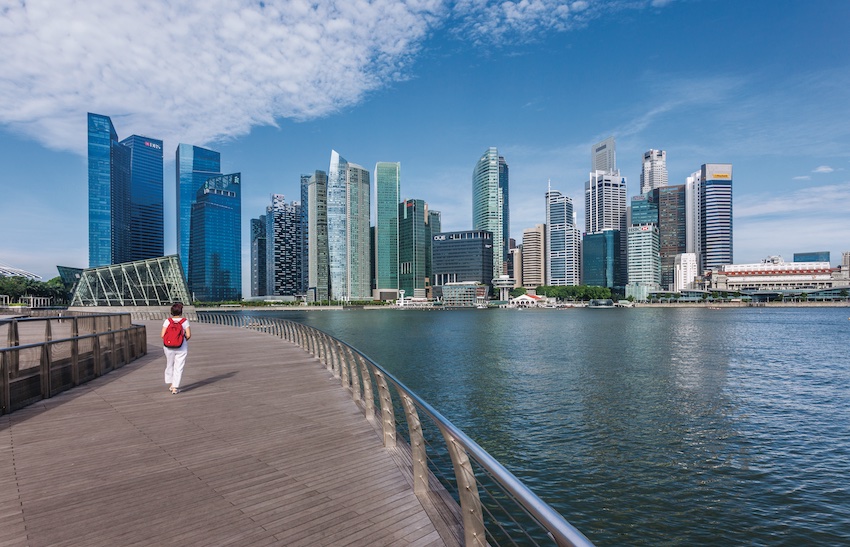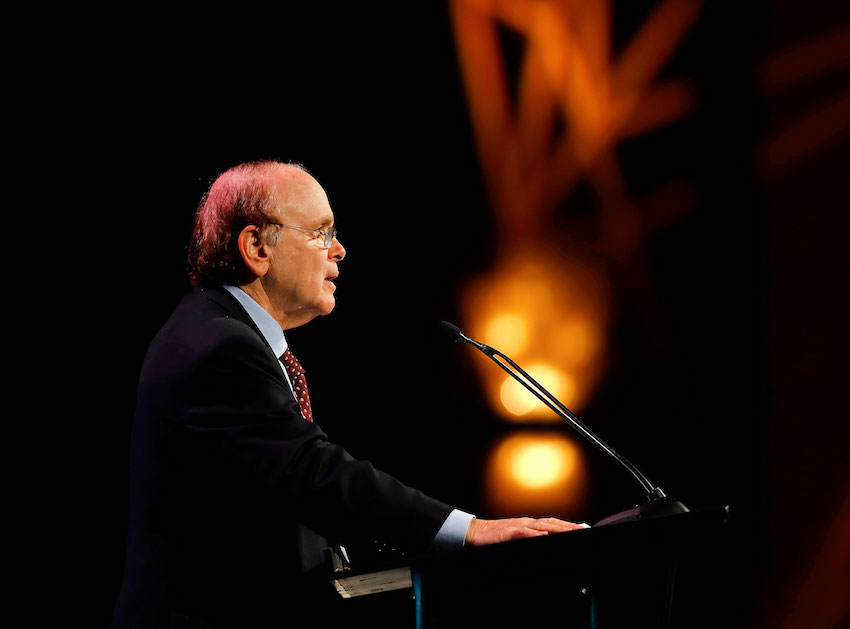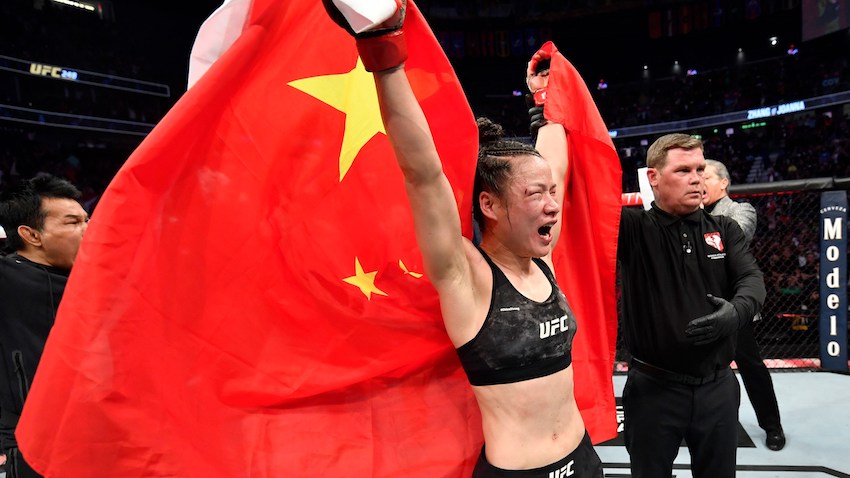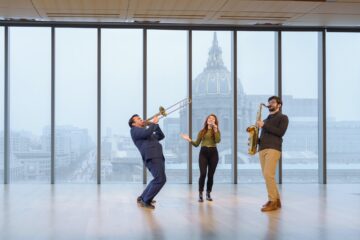Tiny Singapore boasts an outsized presence and performance across a huge range of areas.
Lee Kuan Yew, Singapore’s legendary first prime minister, believed that “an island city-state in Southeast Asia could not be ordinary if it was to survive.” How right he was. Very little about modern-day Singapore—which has done far better than merely survive—can be classified as ordinary.
Today, it boasts one of the world’s busiest ports and one of its best airports. Singapore is among the world’s most densely populated countries and one of the wealthiest per capita. Singaporeans enjoy some of the world’s longest life spans—a Singaporean lives, on average, seven years longer than an American—while spending less of its economy on healthcare than most of its peers. Its education system is similarly stellar, while its cleanliness is legendary—chewing gum isn’t sold in Singapore, because of its propensity to wind up as litter, particularly on public transportation.
The list goes on. Singapore topped the Heritage Foundation’s 2023 Index of Economic Freedom, and before the World Bank discontinued its “Ease of Doing Business” report in 2020, Singapore routinely ranked first or second overall. It finished second in the Global Talent Competitiveness Index 2022, and fifth in Transparency International’s latest Corruption Perceptions Index. For more than 20 years, DHL has published a Global Connectedness Index that “measures globalization based on international flows in four domains: trade, capital, information and people.” Singapore has never ranked out of the top five.
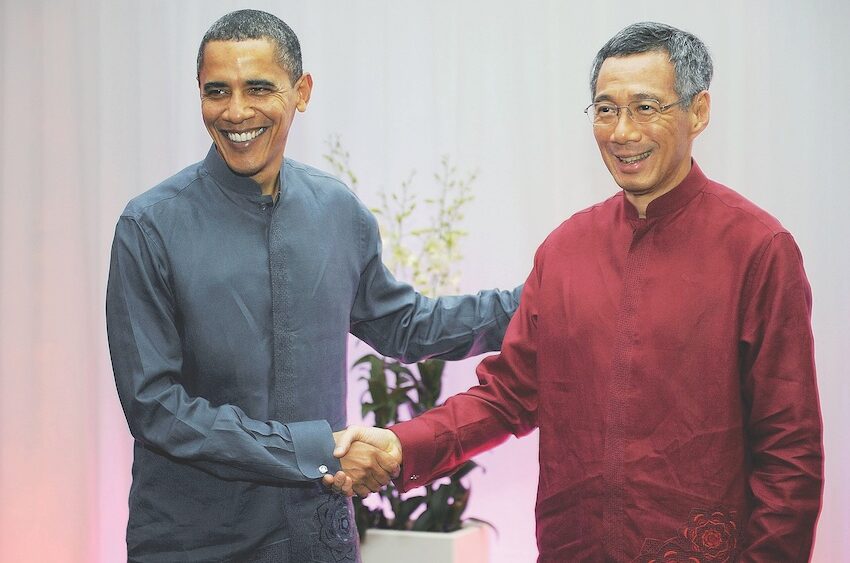
President Barack Obama shakes hands with Singapore Prime Minister Lee Hsien Loong at a state dinner in Singapore in 2009.
Its reputation for safety, stability and efficiency has attracted businesses and investors looking to build a presence in the region—and, increasingly, also Asian companies looking for a stable hub from which to attract Western customers and investors. As the data on the following pages reveal, capital, companies and cargo continue to pour in.
Singapore “punches above its weight,” Barack Obama said while President, alluding to another notable feature about Singapore: its size. Singapore is smaller than every US state, and is home to 3 million fewer people than New York City. Some argue that Singapore’s size—or lack thereof—helps drive its elite performance, the logic being that many of the best-run countries tend to be small. Yet there are plenty of poorly run small countries, and Singapore’s size and location were once seen as a weakness. “By far the smallest country in Southeast Asia,” wrote Henry Kissinger, “Singapore seemed destined to become a client state of more powerful neighbors, if indeed it could preserve its independence at all.”
Singapore’s influence is such that it has become a benchmark for growth and sound public policy. Some Brexiteers hoped that leaving the EU would allow the UK to become a “European Singapore.” Rwanda’s sustained, unexpected economic growth has led some to call it “the Singapore of Africa.” In 2017 Vox asked: “Is Singapore’s ‘miracle’ healthcare system the answer for America?”
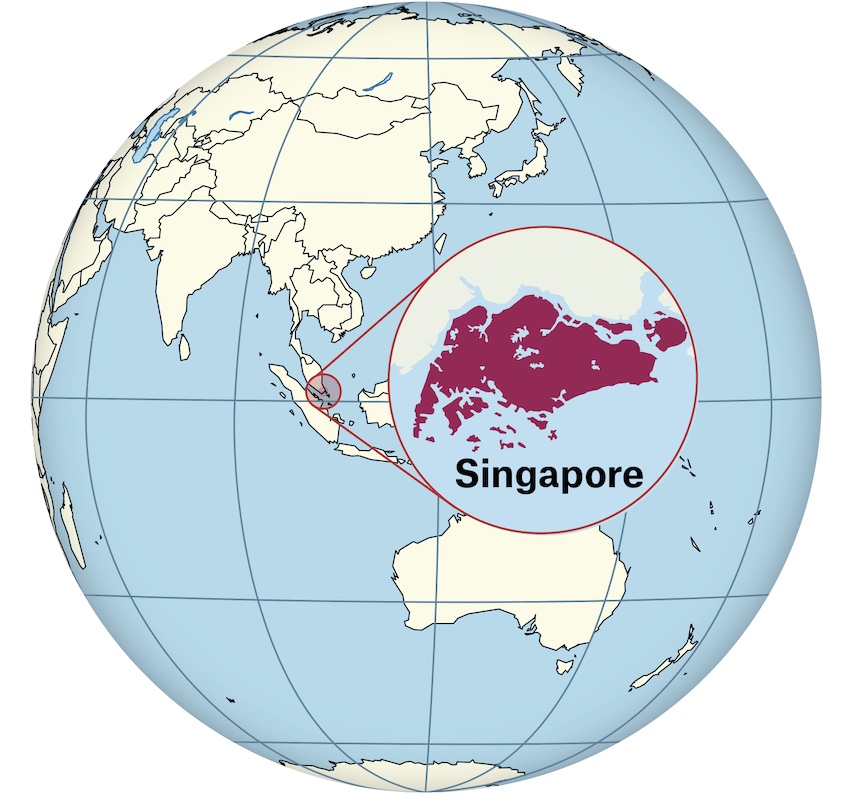
Landwise, Singapore is almost the size of New York City, with 3 million fewer people.
Even some of Singapore’s challenges are world-leading. It is among the most expensive places to live—with costs rising sharply in 2023, particularly rents. And while Singaporeans are living longer, the country also has one of the world’s lowest birth rates. It faces challenges from the effects of climate change which are likely to be significant for a small, tropical island, yet its geographic limitations present challenges in pursuing alternative or renewable energy options. The country continues to enforce the death penalty for a range of violent crimes and drug trafficking, and maintains strict controls on political activity and public gatherings, but it has also repealed laws against same-sex relationships and has acted to stop discrimination based on sexual preference.
And then there are geopolitical pressures. Singapore’s largest trading partner in 2022 was mainland China; its third-largest was the US. “There is no sweet spot to keep both Beijing and Washington happy,” a 2021 Foreign Affairs piece argued, “but that hasn’t kept Singapore from trying.” Singapore continues to make the case that a conflict between the US and China would be devastating for the world, and that countries don’t want to be forced to choose sides.
As Singapore faces these new challenges, it does so guided by a familiar belief. When the country celebrated its 50th anniversary, Prime Minister Lee Hsien Loong, Lee Kuan Yew’s son, delivered a message that would have resonated a half-century earlier: “To survive,” he said to a gathered crowd, “you have to be exceptional.”
From Poverty to Prosperity in a Generation
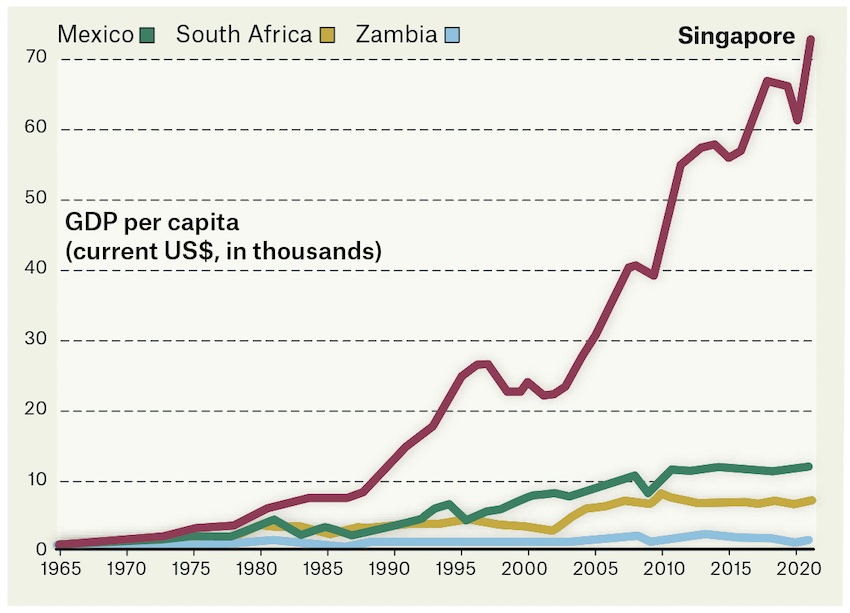
Singapore’s improbable success has inspired vast amounts of analysis. The Economist’s pithy summation is a good place to begin: “A great location, honest government and lots of foreign trade helped transform this tiny state into a regional powerhouse.”
The scale of Singapore’s success can be glimpsed by comparing its trajectory with three other countries which, in 1965, had similar per capita GDP (left).
“The heart of the Singapore story is actually social policy,” Tharman Shanmugaratnam said in a 2016 interview. Shanmugaratnam serves as Senior Minister in the Cabinet and was Singapore’s Deputy Prime Minister from 2011 to 2019.
In that same interview, Shanmugaratnam said that Singapore’s “secret sauce” contained two major ingredients: public education and public housing. The latter helped “people live together without friction, congregate and, over time, get to celebrate multiculturalism,” he said.
Singapore as a Hub for…
Finance
Singapore was Asia’s top financial center in 2022, according to the Global Financial Centres Index.
317 Billion dollars
The amount of foreign capital flows Singapore attracted in 2021, a 15% growth from the previous year. (Bloomberg)
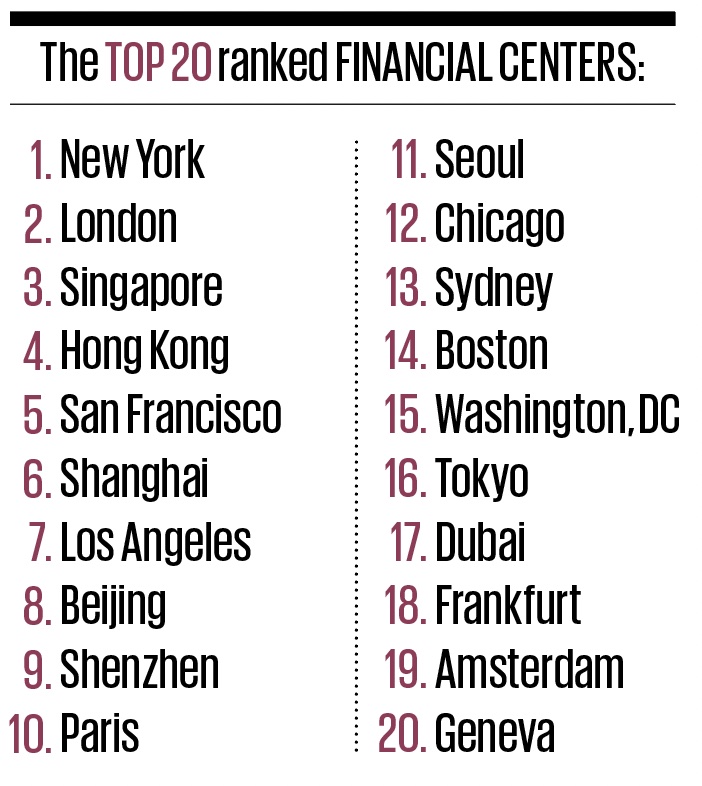
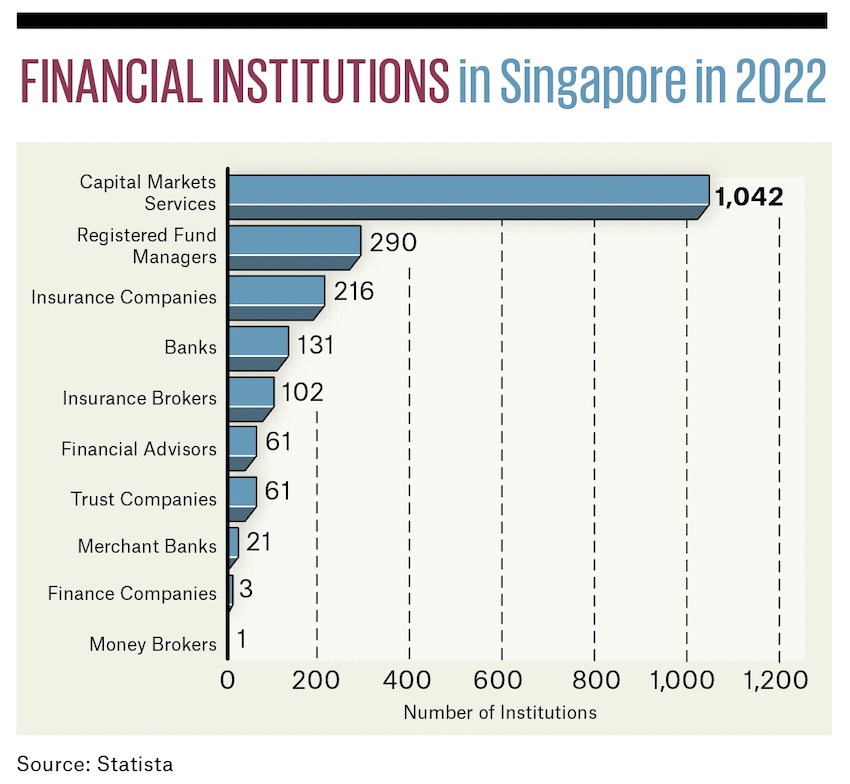
Travel
Travel + Leisure calls Singapore “the Aviation Hub of Asia.” More than 125 airlines fly into Singapore, and the nation is connected by air routes to more than 170 cities. Its flagship airport, Changi, is one of the busiest in the world—and one of the most beautiful. Skytrax ranked it the “world’s best.” Every ASEAN country is a 3.5 hour flight—or shorter—from Singapore.
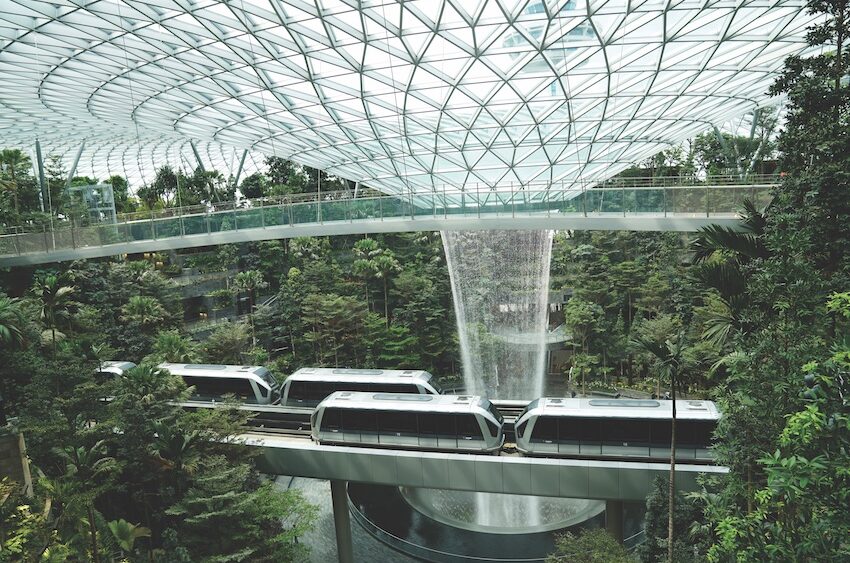
Shipping
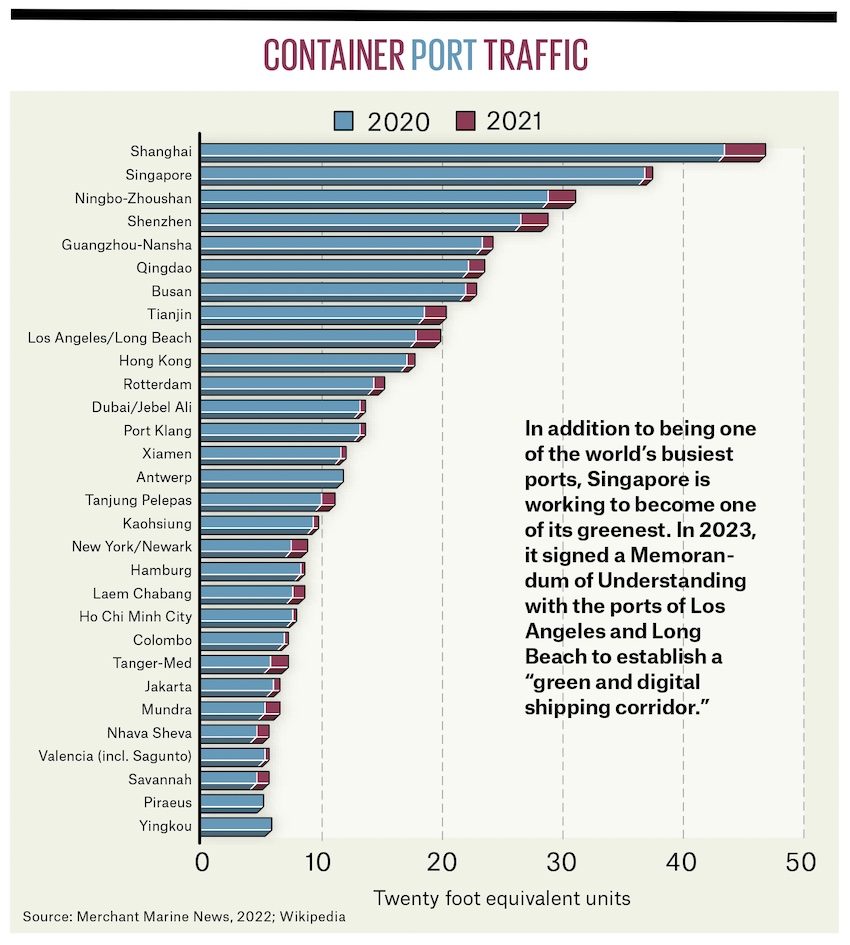
One of the few assets Singapore possessed at its independence, according to Lee Kuan Yew, was “a natural world-class harbor sited in a strategic location astride one of the busiest sea lanes in the world.” That harbor had been built by the British during their occupation. And the sea lane was the Strait of Malacca, a major route for trade to and from Asia. Today, Singapore’s port is the second-busiest in the world. It is also the world’s largest bunkering port, and Asia’s biggest physical oil-trading hub.
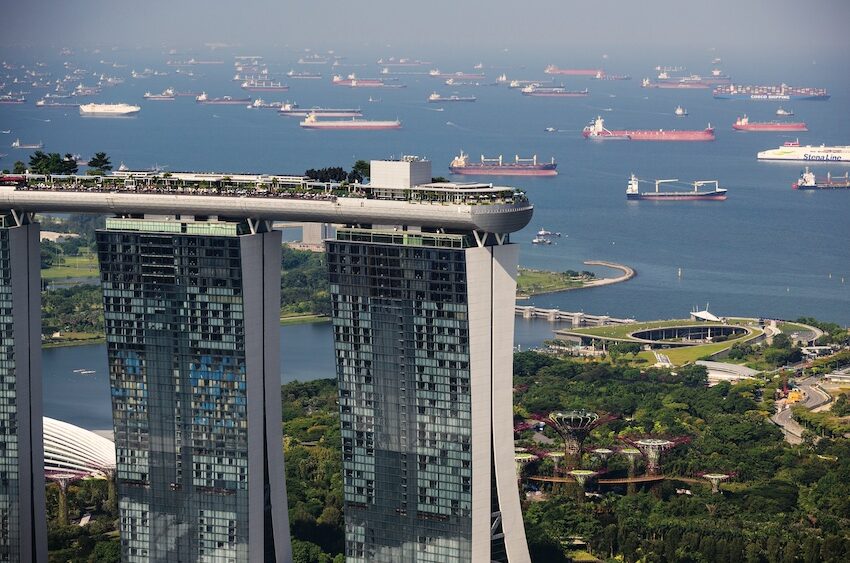
According to its Maritime and Port Authority, Singapore is linked to 600 ports across 120 countries. Every two to three minutes, a ship arrives or departs from Singapore—and at any given moment, the port has roughly 1,000 vessels.
Arbitration
Singapore tied with London for the most popular arbitration seat worldwide, according to a 2021 survey, and it was rated the most preferred seat for arbitration in the Asia-Pacific region. In 2022, the Singapore International Arbitration Centre (SIAC) handled cases that originated from 65 different jurisdictions. Brunswick spoke with Gloria Lim (pictured below), SIAC’s CEO, on page 18, to dive into why Singapore, of all places, has emerged as an arbitration hub.
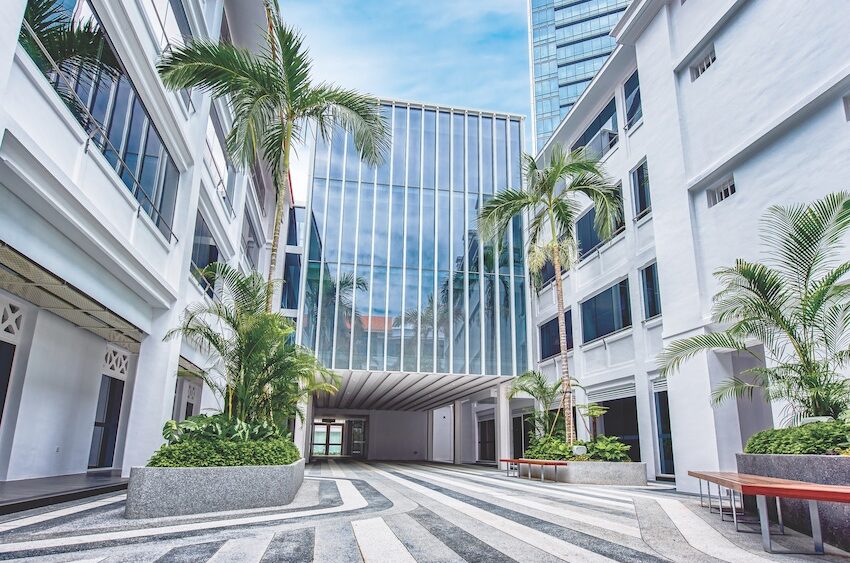
A Green, Growing Island
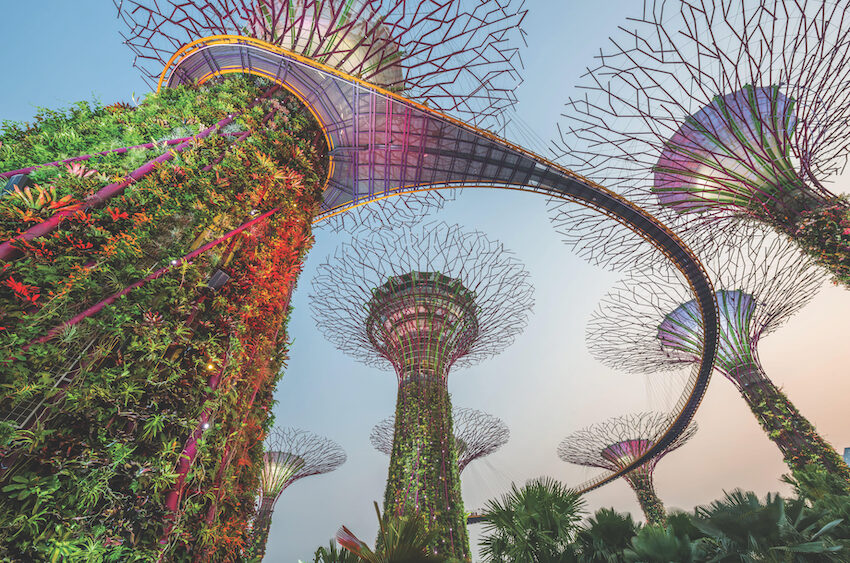
One of the most densely populated countries in the world and one of the most developed—two ingredients you wouldn’t expect for one of the world’s greenest nations. In 1967, Prime Minister Lee Kuan Yew introduced the vision for a “Garden City.” It was a policy decision based on pragmatism, not environmentalism: Green, clean spaces improved morale, Lee felt, and made people more productive. That vision expanded from a tree-planting program into a government-wide approach that influences urban planning, building codes and public-awareness campaigns. Still, the tree planting remains: Between 2020 and 2030, Singapore aims to plant 1 million trees.
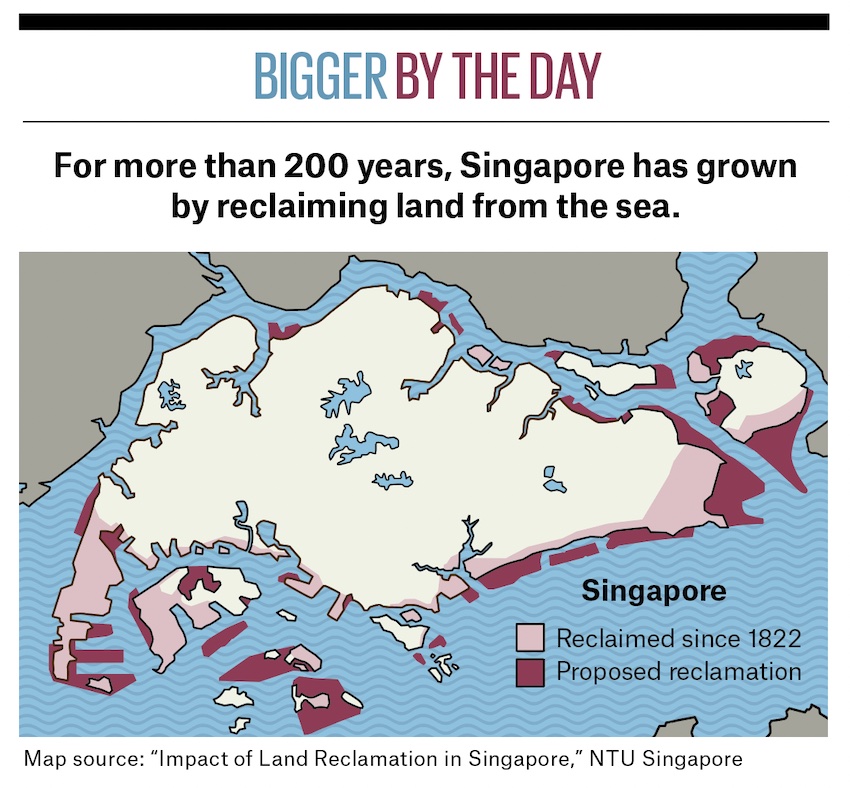
Singapore Expands; “Land from Sand”
“Over the past two centuries, Singapore’s land area has expanded by a whopping 25 percent—from 58,150 to 71,910 hectares (or 578 to 719 sq km),” Lim Tin Seng, an author and librarian at the Singapore National Library, wrote in 2017. That figure has since grown, as Singapore continues to “reclaim” land by adding rocks, soil and cement to water. Iconic buildings and sites now sit on this newly created land. Singapore isn’t unique in this: New York’s Battery Park is built on reclaimed land, as is the Palm Jumeirah in Dubai.
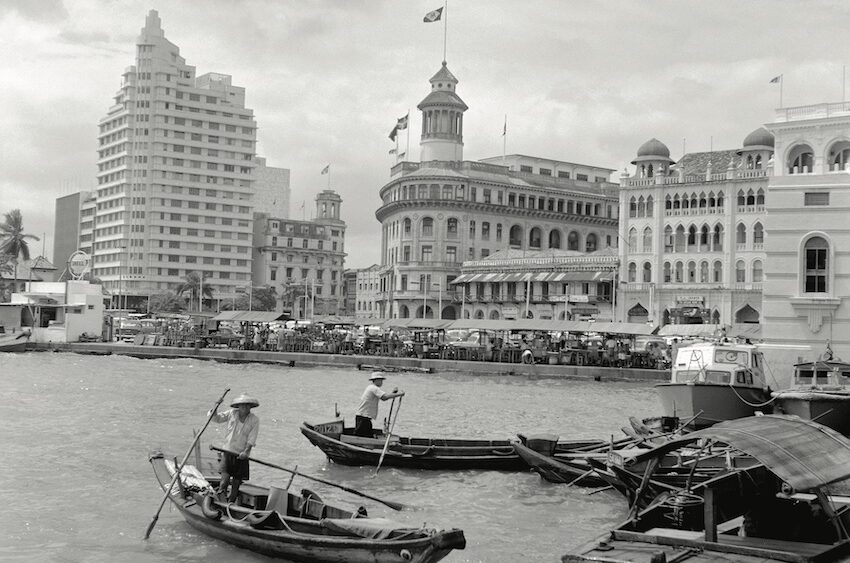
Singapore in 1962, three years before it became an independent country. “We had to work against seemingly insuperable odds to make it from poverty to prosperity in three decades,” wrote Lee Kuan Yew.
More from this issue
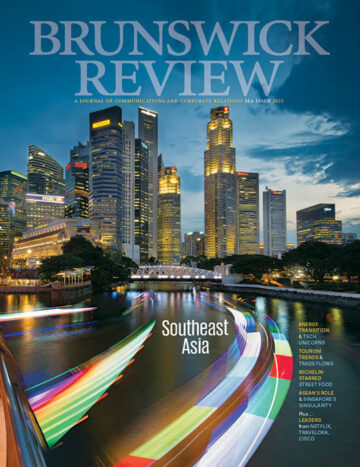
Southeast Asia
Most read from this issue
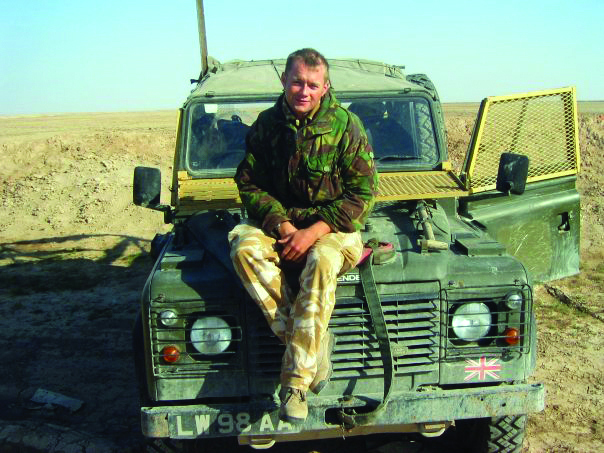
Shared Spirit
